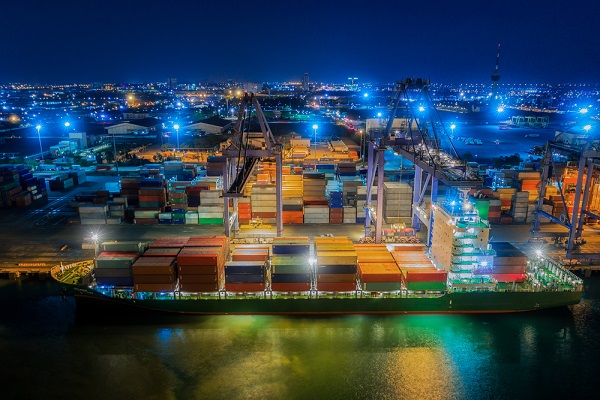Russia-Ukraine War, Inflation to Impact Marine Insurance in 2023

By: Olivia Overman
In 2022, global trade was projected to reach $32 trillion, with trade volumes increasing by 3%, according to the 2022 Global Trade Update from the United Nations Conference on Trade and Development (UNCTAD), a Switzerland-based intergovernmental organization. Continued growth in the global trade economy ensures that the commercial insurance marine market remains a necessity for both manufacturers and distributors of goods and services.
“Marine insurance is perceived as a necessary coverage by traders as their high-value goods are following a very volatile path to a final destination,” says Ray Markley, president of Shorepoint Insurance Services, an Acrisure Partner. “If not from personal experience, then enough horror stories by vendors, customers and the general media illustrate the necessity of marine coverage.”
Yet, it remains to be seen what 2023 will bring—while 2022 overall brought global trade growth, the second half of 2022 did see the beginnings of a downturn when trade in goods declined by approximately 1%. Rising inflation has had an impact on pricing and consumer spending, the impact from the Russia-Ukraine war continues to be felt alongside other geopolitical concerns, and supply chain disruptions linger. The global maritime trade growth is expected to slow to 2.1% through 2027, a decline from the 3.3% average recorded during the past three decades, according to UNCTAD.
“The biggest trend we are watching is the impact of inflation on the market,” says Mike Perrotti, chief underwriting officer, marine—Americas, AXA XL. “The costs to replace a vessel are going up, with supply chain disruptions pushing up the cost of materials used in marine hull construction, as are increased labor costs and higher inflation rates globally. However, we’re not seeing reported values increase.”
As ships deliver over 80% of world trade, according to UNCTAD, any disruption in replacing or repairing vessels could cause significant problems for the market and clients because “if the vessel isn’t insured to value, someone will be left holding the bag in the event of a loss,” Perrotti says.
Social inflation is also affecting the marine market. “We are monitoring the sustainability of further price correction in the context of claims and social inflation,” says Sam Hellebush, product line director, hull & liability, Intact Insurance Specialty Solutions.
“Both are somewhat related and cause market reactivity and are currently outpacing a historically elevated consumer price index,” Hellebush says.
For cargo, the value of both goods in transit and storage has risen significantly. “The cost of goods is up, which raises underwriters rating based on goods,” says Brendan Neligan, marine insurance broker, Risk Placement Services Inc. “And from a claims perspective, whether you’re replacing cargo or you’re repairing boats or commercial vessels, the cost to do so is that much higher. Eventually, we’re going to need more premium to cover the higher claims costs.”
“The market can be described as firm but not overly onerous,” Neligan says. “Nevertheless, this is the fourth year in a row that we are seeing rising rates.”
And while transportation premiums are manageable, “warehouse storage premium costs continue to rise due to stuffed warehouses with little capacity,” Markley says. “The concentration of risk is significant,” he adds, which is resulting in “higher premium and restrictive coverage terms.”
“Warehousing continues to require multiple insurers if the limit exceeds $10 million or the storage is in a tougher geography or has a higher susceptibility to fire risk, such as food processing,” Markley explains.
As a result, “businesses are going to start expanding into outside storage in parking lots or along the outside perimeter, and that creates an enhanced risk,” Neligan says.
“One of the main trends that we’re seeing in the market currently is stock being covered by a throughput policy, which is essentially a cargo program that also covers inventory, ensuring there are no gaps in coverage and no pitfalls for goods moving through the supply chain,” Neligan adds.
Additionally, as inflation continues to increase, and the war in Ukraine continues to impact global food, energy and fertilizer markets, flattening global trade activity could eventually lead to a decline in global trade, which could have an impact on the marine insurance market.
The Russia-Ukraine war disrupted the chances of global economic recovery from the COVID-19 pandemic, at least in the short term, according to The Globe Newswire. The war has led to economic sanctions on multiple countries, commodity price surges and supply chain disruptions affecting many markets across the globe, according to the report.
For the marine industry, as reinsurers reconsider covering risks relating to the war in Ukraine, the greater the onus will be on insurers. Some will likely have to reduce what they offer—forcing shipowners into a rush to try to find alternatives, or even operate with less cover, according to BNNBloomberg.
Olivia Overman is IA content editor.










